- Author Jason Gerald gerald@how-what-advice.com.
- Public 2023-12-16 10:50.
- Last modified 2025-01-23 12:04.
This wikiHow teaches you how to keep Windows updated using the Windows Update Tool. While most updates will install automatically on Windows 10, you can run the update tool yourself to see if any updates need to be made.
Step
Method 1 of 3: Updating Windows 10

Step 1. Click the Start button
It's usually in the lower-left corner.
- Periodically, Windows will check for updates and install them automatically. You can still use this method to check for updates released since the last update check.
- After Windows installs automatic updates, you may need to restart your computer. If a message appears asking you to restart (or schedule a restart), follow the on-screen instructions to do so.
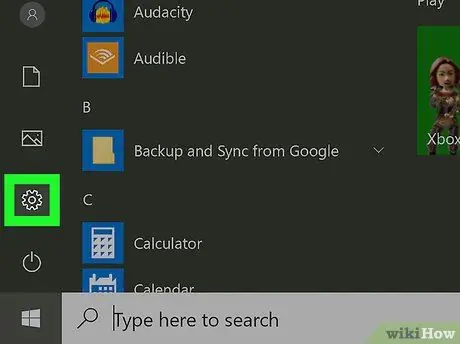
Step 2. Click Settings
located at the bottom of the menu.
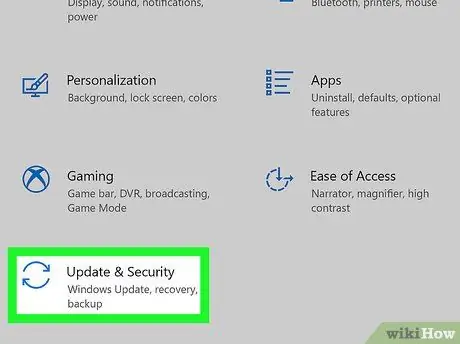
Step 3. Click Update & security
This option takes the form of two curved arrows.
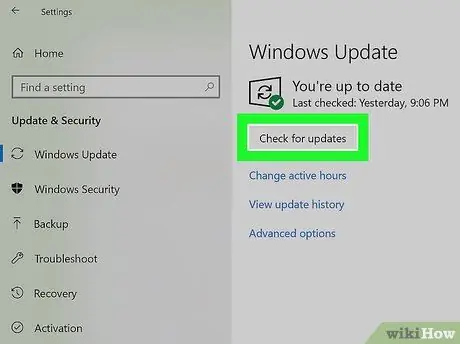
Step 4. Click Check for updates at the top of the right-hand pane
This will ask Windows to check for updates.
- If no update is available, a message will appear saying Windows is up to date.
- If an update is available, Windows will download it automatically. The progress of the update will be displayed at the top of the right-hand pane under "Updates available".
- Keep the window open while the update is installed so you know whether or not the computer needs to be restarted.
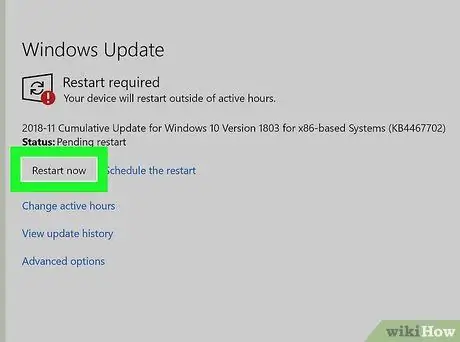
Step 5. Restart the computer when prompted
If you see a message that says "Restart required" after the update tool starts, you can restart your computer right away or do this later.
- If you want to restart now, save all the work you did. Close all applications, then click Restart now (which is in the Windows Update window).
- If you want to restart later, click Schedule the restart (which is in the Windows Update window), slide the switch to On (in blue), then select the time you want to restart when you're not using your computer.
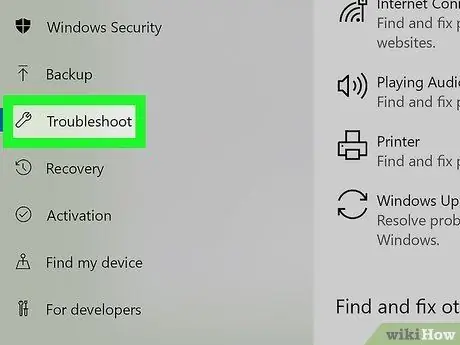
Step 6. Troubleshoot failed updates
If the update fails or an error message appears, try to resolve it by following these steps:
- Make sure the computer is connected to the internet.
- Restart the computer and then run the update tool again.
- If the update still fails, go to Settings → Updates & Security, then click Troubleshoot in the left pane. Click Windows Update under Get up and running, and follow the instructions given on the screen to resolve the issue.
Method 2 of 3: Changing Windows 10 Update Preferences

Step 1. Click Start
It's usually in the lower-left corner.
Although Windows will install most updates automatically, you can set how to update your computer. Use this method to perform updates in the background
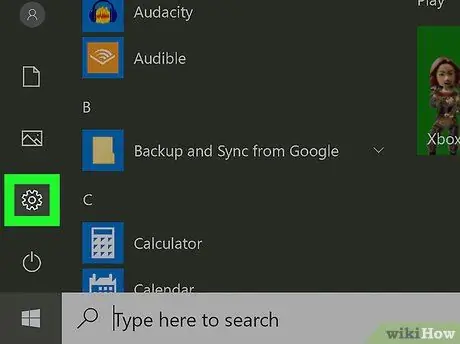
Step 2. Click Settings
which is at the bottom of the menu.
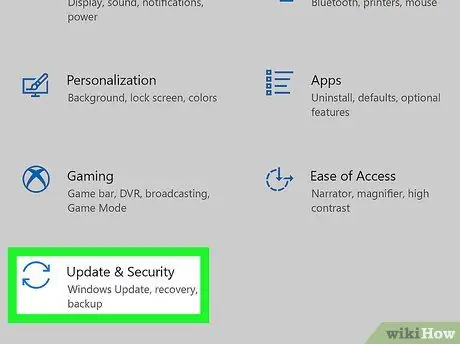
Step 3. Click Update & security
This option takes the form of two curved arrows.
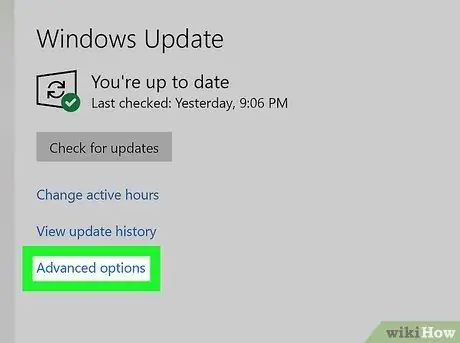
Step 4. Click on Advanced options located at the bottom of the right-hand pane
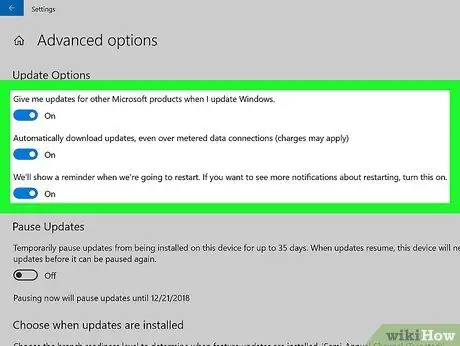
Step 5. Set the desired preferences using the buttons located under Update Options
-
Give me updates for other Microsoft products when I update Windows:
Turn this button on if you want Windows Update to check for updates for Microsoft products such as Office, Visio, and Edge.
-
Automatically download updates, even over metered data connections:
If you pay for internet service based on the amount of data used, leave this button in the inactive position (grayed out). If the button is inactive, you will receive a notification when there is an update, but you must agree to download it.
-
We'll show a reminder when we're going to restart:
(Some screens may say "Show a notification when your PC requires a restart to finish updating") If you want to get more notifications about restarting your computer, enable this option. It's a good idea to enable it so Windows doesn't restart your computer at an inconvenient time.
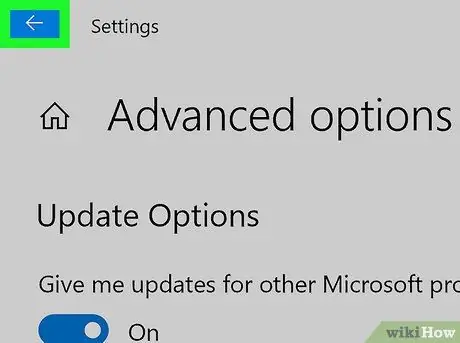
Step 6. Click the Back button in the upper left corner
The Windows Update window will be displayed again.
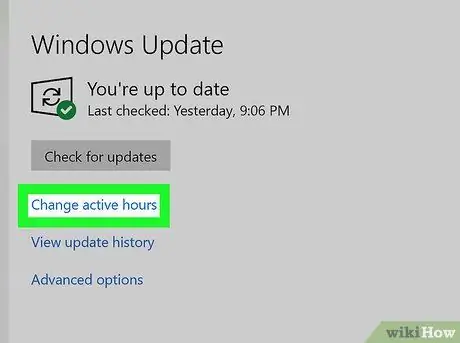
Step 7. Click Change active hours
It's in the right pane, above View update history.
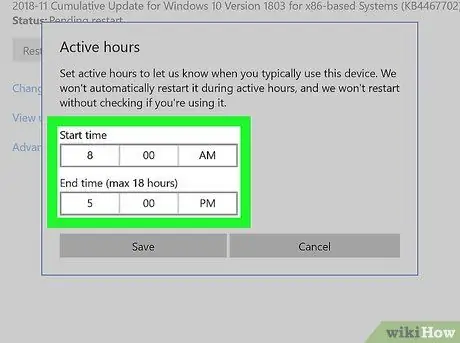
Step 8. Choose a time when you are not using the computer
Since Windows will restart your computer after installing certain important updates, make sure to do this when you're not working on something important. Set the start and end time (maximum amount of time is 18 hours), then click Save.
Method 3 of 3: Updating Windows 7 and Vista

Step 1. Click Start
This button is usually in the lower-left corner.
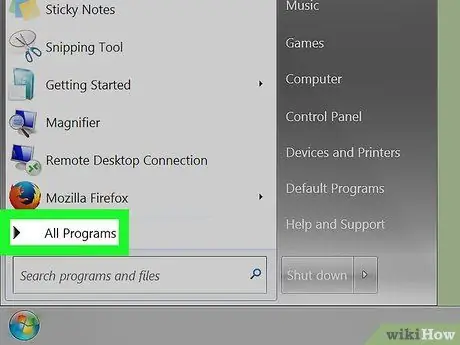
Step 2. Click All programs
This will bring up a list of all apps.
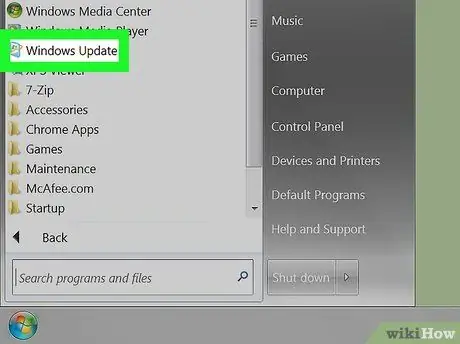
Step 3. Click Windows Update
The Windows Update tool will run.
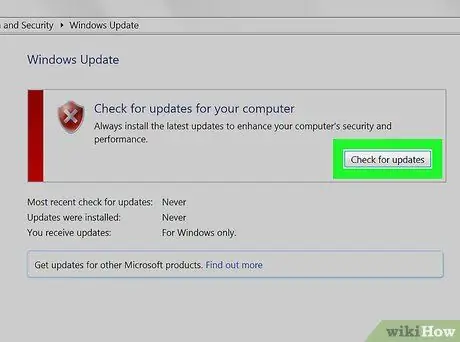
Step 4. Click Check for updates
Wait while the Windows Update tool scans for updates that have not been installed on the computer.
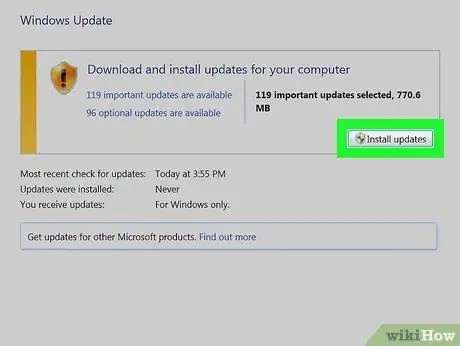
Step 5. Click Install updates if an update is available
When Windows finds an update that needs to be installed, the number of updates is displayed at the top of the window. Click the button to start installing the update.
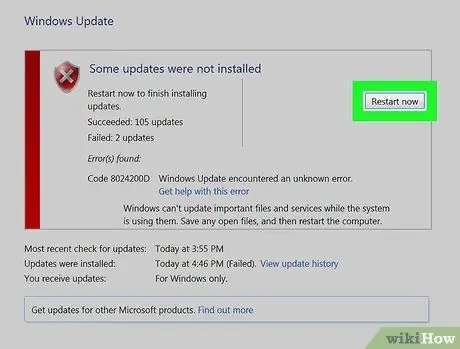
Step 6. Follow the on-screen instructions to complete the computer update process
Most updates require you to restart your computer after the installation is complete. When it finishes restarting, the computer is up to date.






